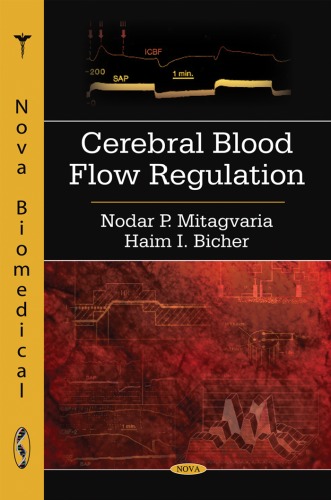

Most ebook files are in PDF format, so you can easily read them using various software such as Foxit Reader or directly on the Google Chrome browser.
Some ebook files are released by publishers in other formats such as .awz, .mobi, .epub, .fb2, etc. You may need to install specific software to read these formats on mobile/PC, such as Calibre.
Please read the tutorial at this link: https://ebookbell.com/faq
We offer FREE conversion to the popular formats you request; however, this may take some time. Therefore, right after payment, please email us, and we will try to provide the service as quickly as possible.
For some exceptional file formats or broken links (if any), please refrain from opening any disputes. Instead, email us first, and we will try to assist within a maximum of 6 hours.
EbookBell Team

0.0
0 reviews
ISBN 10: 1606921630
ISBN 13: 978-1606921630
Author: Nodar Mitagvaria, Haim Bicher
Studies of the mechanisms relating blood supply to the brain appeared to be, in some sense, at a deadlock. Despite extensive application of different methodical approaches, no qualitative progress has been observed in these studies at the present time. This is perhaps due to the traditional, but not understandable, separation of neurophysiological and 'circulatory' studies. It may seem very paradoxical, but the study of cerebral blood circulation proceeds almost in complete isolation from the knowledge about brain functions and does not take into account the specificity of the working brain as a part of the whole body. This book comprehensively addresses the issues of blood flow regulation. It is well known that the brain belongs to the group of organs having a high level of oxygen consumption. Oxygen consumption by the brain is an average 4.6 ml per 100 g of tissue per minute. In humans, the level of oxygen consumption by the whole brain attains 46 ml/min. This makes up approximately 20 per cent of the total oxygen volume consumed by the organism. Consequently, the cerebral tissue is characterised by highly energetic processes. There is evidence indicating that even in functionally resting conditions, 18 per cent of the entire energy expenditure of the body is utilised by the brain Calculations made by Rushmer indicate that the intensity of energy consumption by the human brain appears to be on average 20 Watt.
Chapter1 : Introduction
Chapter 2: Content
Chapter 3: Conclusion
Chapter 4: Appendices
Chapter 5: Glossary
Chapter 6: References
Chapter 7: Index
integrative cerebral blood flow regulation in ischemic stroke
cerebral blood flow regulation ppt
neurogenic regulation of cerebral blood flow
metabolic regulation of cerebral blood flow
regulation of cerebral blood flow and metabolism during exercise